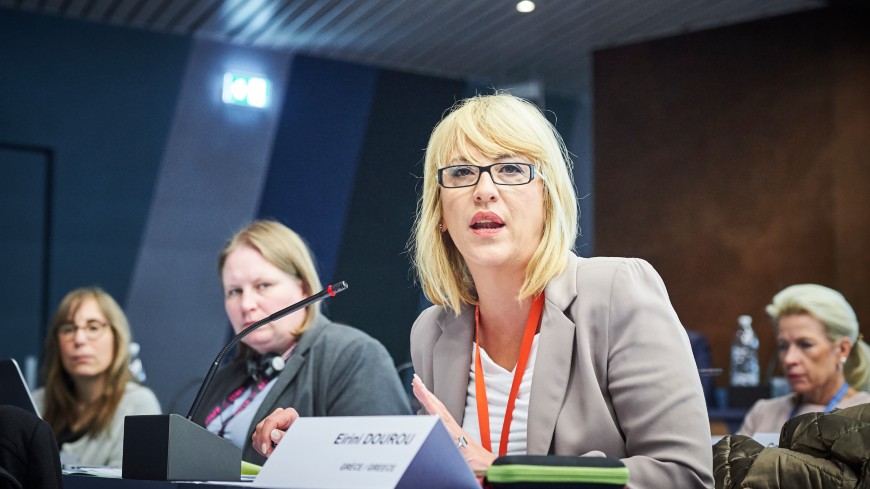Congress Spokesperson on Gender Equality Eirini Dourou (Greece, SOC/G/PD) called for recognition of women's courage in crisis situations and made the following statement:
"Europe’s communities have faced and are continuing to face a myriad of crises. Local and regional authorities have to respond to the impact that war, economic hardship, the pandemic and climate change will have on local societies. Not to mention the “undeclared war” on women in Europe during the post-pandemic period, as expressed by the rising number of femicides, according to the European Data Journalism Network. In the midst of this, we must not forget that, on top of being disproportionately affected by crises, women proved to be important actors of change, driving forces for recovery and catalysts for resilience in critical situations.
Making up almost 70 per cent of healthcare workers, many women were put under enormous professional strain during the recent pandemic, whilst at the same time many were teaching their children and caring for their families, thus becoming even more important pillars of society in the public health crisis. The large majority of those fleeing war-struck Ukraine are women and children, and women are also amongst those most impacted by the recent earthquakes in Türkiye, for example the more than 200,000 pregnant women in affected regions. At the same time, many of them had to protect themselves against continuous gender-based violence, including domestic violence.
However, women are also regularly showing their outstanding resilience in the face of adversity and have proved to be adaptive and innovative when access to immediate and vital needs is lacking. Following the recent earthquakes in Türkiye and Syria, female organisations are deploying enormous efforts to support the victims remaining in destroyed cities, to respond to their basic needs and health conditions.
As Congress Spokesperson on Gender Equality, I would like to stress that it is the responsibility of local leaders, mayors and councillors to ensure that recovery and resilience-building policies are not overlooking women’s needs and rights but are developed in the most gender-sensitive and inclusive manner, based on female potential and knowledge.
Strong cities, strong regions must mean strong women’s rights. Strong cities, strong regions must mean strengthening human rights for all. Local and regional authorities have to work out comprehensive strategies for recovery and resilience policies, based on gender equality and women’s equal participation in local public life. When more women participate in public and political life, democracy, human rights and the rule of law are bound to win."
International Women's Day (celebrated on 8 March every year) is a global day marking the social, economic, cultural, and political achievements of women and regularly calling for further strengthening women’s rights and equality. The Congress of Local and Regional Authorities has a long-standing commitment to promoting gender equality and women’s’ equal participation in local public life.
See also: Gender Equality




